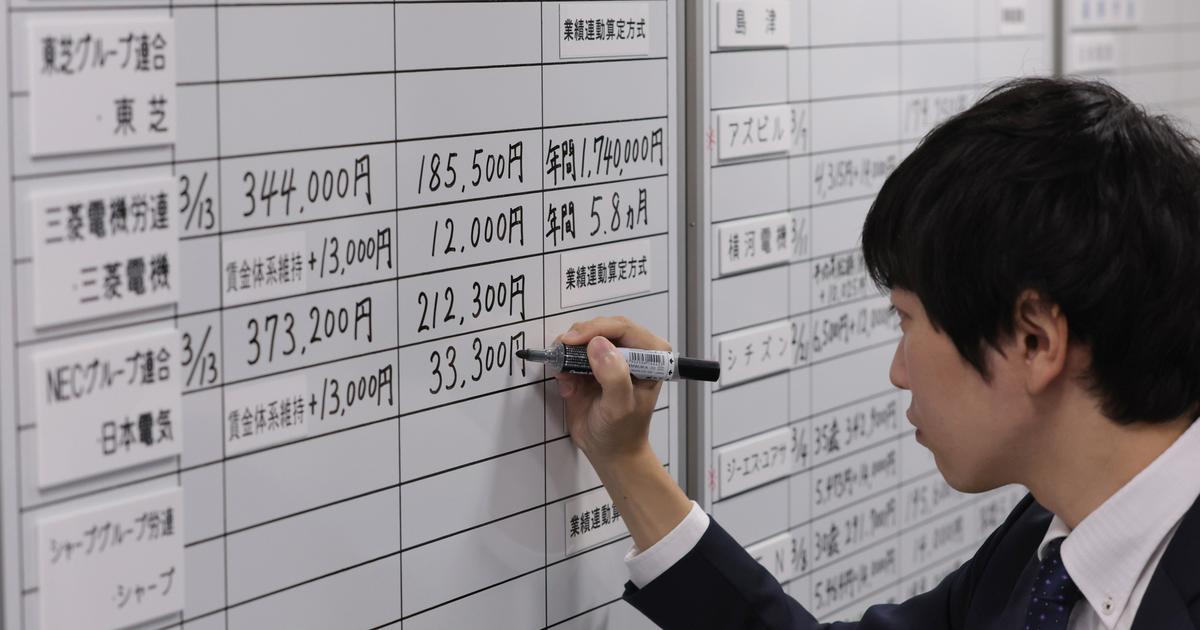The Japanese Finance Minister, Shunichi Suzuki, warned on Monday of the "unprecedented" deterioration suffered by the country's fiscal health due, in part, to the "budgetary response to the coronavirus crisis and other similar problems."
Japan's public debt is more than double its annual economic output, making Japan the industrialized country facing the most pressure.
Suzuki's remarks come days after the central bank opted to keep its ultra-easy monetary policy intact and at a time when inflation has hit a record high in four decades.
In his speech at the first parliamentary session of the year in Japan, Suzuki emphasized that public finances "are the cornerstone of confidence in a country" and highlighted the need to "guarantee sufficient fiscal space to prevent the well-being of its citizens undermined in times of emergency.”
Japan's public debt is the highest among the G-7 countries (Group of the seven most developed countries), and has been aggravated in the last year by the covid-19 pandemic and by the global increase in inflation.
In 2021 it stood at 262.5% of its gross domestic product (GDP), according to data from the International Monetary Fund.
More than 51% of Japan's government bonds are held by the central bank.
For years, the government has been favored by yields on those securities around 0%, but recently, fixed income investors have been pushing for higher incentives.
Contrary to the demands of investors and, even, to the strategies implemented in the United States and the European Union to contain the galloping inflation, the Japanese central bank opted last Wednesday to keep the interest rate at -0.1% short-term bonds and continue to apply a yield curve control policy, conditioning the fluctuation of the yield of ten-year bonds in a maximum range of 0.5%.
Betting on the rise in interest rates would increase the financing costs of the State.
The Ministry of Finance estimates that each one percentage point increase in interest rates would boost debt service by 3.7 trillion yen (26,129 million euros), reaching 32.5 trillion yen (229,494 million euros) for the fiscal year 2025/2026.
“The Executive will strive to manage the government bond issuance in a stable manner through close communication with the market,” Suzuki said.
“Overall government debt issuance, including bond rollovers, remains at an extremely high level, worth about 206 trillion yen [one trillion euros].
We will redouble efforts to keep government bond issuance stable,” he added.
One of the unfinished business of Japanese executives over the last decade has been balancing the public accounts, that is, achieving a balance between their income and their fiscal expenses and the costs of financing their debt.
In this regard, the head of the Finance portfolio reiterated in his speech on Monday that the Government of Fumio Kishida maintains the objective of balancing them for the fiscal year that ends in March 2026.
In the opening speech of the parliamentary session, Japanese Prime Minister Fumio Kishida echoed Suzuki's determination to revive the economy and stressed the need for a positive growth cycle led by corporate profits and private consumption.
“Wage increases are the key to this virtuous circle,” Kishida said.
The Japanese leader has recently shown his concern about the stagnation of salaries due to the increase in prices and has asked the country's companies to review their remuneration systems.
Following this line, Kishida also promised to promote the labor reform to create a structure that allows a sustainable growth of wages to overcome the increase in the cost of living.
Inflation in Japan accelerated in December to 4%,
For the next fiscal year, which begins in April, the Government expects to approve a record budget of 114,380 trillion yen (806,000 million euros), which includes additional items to mitigate the growing cost of raw materials and energy for individuals and Business.
The budget also includes an increase in military spending, which Japan plans to bring to around 2% of GDP in the next five years, at the level of NATO countries, due to growing concerns about regional security in the face of rapid arms advances. from its neighbors China and North Korea.
Subscribe to continue reading
Read without limits
Keep reading
I'm already a subscriber




/cloudfront-eu-central-1.images.arcpublishing.com/prisa/ULLVQMZJ3B5Q65JVZ3L32DED7I.jpg)

/cloudfront-eu-central-1.images.arcpublishing.com/prisa/BSW76ADTMZBGXEN5B5THLU2R7M.jpg)


/cloudfront-eu-central-1.images.arcpublishing.com/prisa/V7VWQYKVFVAJDPG3TQOP75Y74M.jpg)